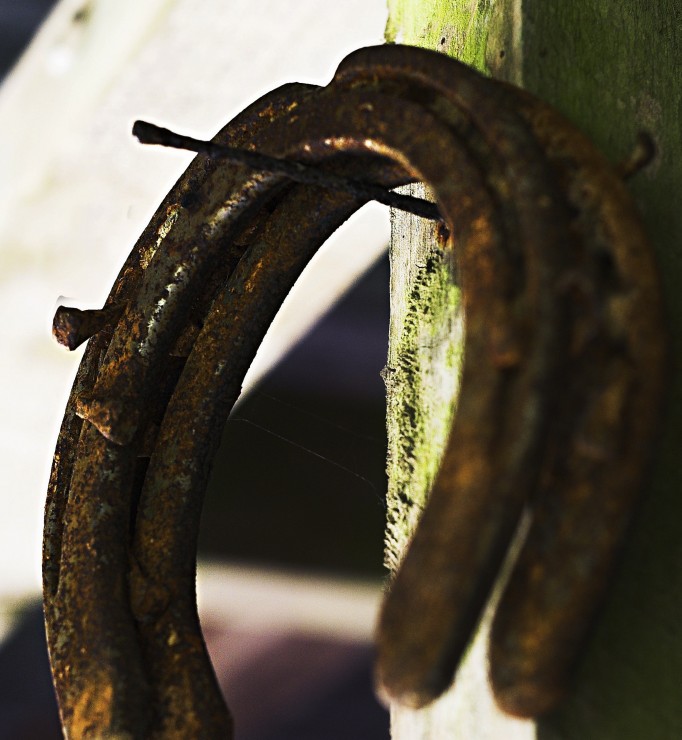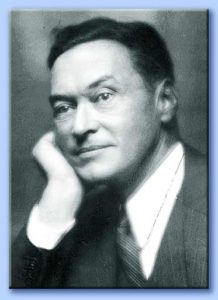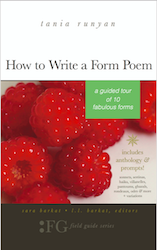
How to Write a Poetry Review
We had considerable conversation, and a little controversy, around my post two weeks ago, The 6 Most Overused Words in Poetry Reviews. I didn’t realize poetry reviews were such a hot topic.
A common question arose: “OK, so you have six overused words in poetry reviews and three more that are contenders for the list of most overused. Just how do you go about writing a poetry review?”
I consider poetry and book reviews highly subjective endeavors. It is someone’s opinion, after all, of someone else’s creative work. There’s no textbook approach I could cite that would meet all conditions and situations.
But I can explain how to write a poetry review by describing how I do poetry reviews myself.
And you can blame Walter Lippmann (1889 – 1974).
Lippmann wrote a book entitled Public Opinion (1922) that was likely the most influential book on journalism until Marshall McLuhan came along more than 40 years later with Understanding Media (1964). Lippmann was a modernist, strongly influenced by science and the scientific method, and saw journalists as a key link between government and the public. He recognized that people bring preconceived ideas with them (we call them worldviews today) and it was critical to present the facts before those preconceived ideas could harden.
What flowed from Lippmann’s ideas was the notion of objectivity in journalism. What also developed was a journalistic approach known as “The Five Ws” or “The Five Ws and One H”—who, what, when, where, why and how. This is what I learned in journalism school in college, even as the ideas were becoming much more fluid with the impact of television (McLuhan) and the Watergate scandal. A decade later, the influence of post-modernism would begin to make an impact as well.
As an aside, Lippmann was a co-founder of The New Republic; won two Pulitzer Prizes for journalism and reporting; helped Woodrow Wilson draft the Fourteen Points speech; coined the phrase Cold War; feuded with Lyndon Johnson over the Vietnam War; and is considered today to be the father of modern journalism.
BUY ‘HOW TO WRITE A FORM POEM’ NOW!
5 Ws and One H
Those “Five Ws and One H”—that’s generally how I write poetry reviews. It was how I learned to write news stories in college, and how I learned to write first music and fiction reviews and later poetry reviews.
Who: I like to know who the poet is, what (if anything) has been previously published, if they have a website and how they describe themselves, and, if available, to see a photo. This is information that helps shape a review, and it’s important for a reader to know. The “who, ” even if brief, places a personality around the poems under consideration.
What: What kind of poetry is it? What form does it follow (or does it have a form)? What is the subject of the poems in the collection?
When: Is this the poet’s first collection? A chapbook? Where does it fall in the poet’s writing career? Does the collection make use of childhood or old-age themes and ideas? Is time an important factor in the poems?
Where: Does the volume have a geography? Robert Frost has New England, Carl Sandburg had Chicago, Walt Whitman had the Civil War hospitals of Washington and his home in New York, and Emily Dickinson had Amherst, Massachusetts. Is geography or a sense of place a strong element in the collection being reviewed?
Why: What is the poet trying to accomplish? What are the themes and ideas the poet is attempting to communicate?
How: How does the poet use language? What are the key metaphors (and there are almost always key metaphors)? What images are employed? What does all of this tell us about what’s going on in these poems?
While I always believe in providing context for a review, the fact is that a book of poetry can be evaluated simply on the basis of itself. It can also be evaluated by focusing solely on any one (or two) of the Five Ws and One H.
I’m not sure if Walter Lippmann ever thought his influence would extend to the writing of poetry reviews, but I don’t think he would be surprised.
Photo by Mike Locke, Creative Commons, via Flickr. Post by Glynn Young, author of the novels Dancing Priest and A Light Shining, and Poetry at Work.
- Essays: Benjamin Myers Takes on Ambiguity and Belonging - February 4, 2025
- Poets and Poems: Louis MacNeice and “Autumn Journal” - January 30, 2025
- “What Remains: The Collected Poems of Hannah Arendt” - January 28, 2025



Megan Willome says
See? Journalism!
Mary Sayler says
Timely again, Glynn. I have a bilingual edition to review, and your article helped. I suspect other poets and writers will gain much from your suggestions too, so I’ll highlight your post on the Christian Poets & Writers blog – http://www.christianpoetsandwriters.com
Charity Singleton Craig says
Glynn – This is enormously helpful for reviews of all types. It’s also a good way just to enter into literature of all types, to find the context and the meaning of words others write. Thanks so much!
Violet N. says
“Objectivity in journalism…” what a novel concept!
Great article. As Charity said above, helpful for all review. I’m going to file this one.
Grant Clauser says
The last one, the “how” is the most important, and the one that gets most neglected in reviews. So often the reviewer focuses on the subject and themes in poems, and not the craft or style, but it’s the craft that set the great poems apart from the rest.
Koona Smith says
thank you so much. you helped me with my problem. God bless.
Garima says
It was an immensely helpful read. Thank you!
Smitha says
This post is extremely helpful. Have a few books to write a review on and had no idea of how to go about it. Thank you for this.
Lalawmpuii Ralte says
I find this post really helpful. I have to write a review on my sister’s collection of poems and I didn’t know how to begin. Now at least I can try
Mary says
Hi Glynn – very humorous and true. I wondered what all the luminosity was about!!! I was comforted by again finding myself grounded, as in any state of learning, by the Who, What, Where, When, Why and How. I agree that one has to start with oneself before reading any other review. I have used these 6 word-tools in the Learning and Development profession for years. I don’t suppose one can invent a sequencing of words but by attaching oneself to their usefulness and by sharing learning, they can transform into way-marker posts. Thanks for reminding me and for being Lippman-like … for sharing, for being a guide 🙂
Glynn says
The six words are tried and true – but they still work just fine. Thanks for the comment, Mary.
I. Mónica del P says
Greetiengs from Bogotá!
Hi Glynn:)
Just last night I got to know this space. Recently I began to read poetry “judiciously” and with this article you have helped me a lot to improve my approach with the genre (and to enjoy it more).
Have you read Raul Gómez Jattin? I recommend it to you. I would like to know your opinion.
Glynn says
Thanks for the comment! I looked into Gomez Jattin. On Amazon, his works are available only in Spanish. I checked two other sites, and all they had were Spanish versions as well. If you come across an English translation, please let me know!
I. Mónica del P says
Thanks to you, you are very generous with knowledge.
Of course, I will tell you.:)
J'Naye Wise says
Hello Glynn, it’s a great article with tons of insights to learn from. It’ll be very useful to me since I’m planning to start my second book of poems already.
Anita Warrington says
Keep up the good work Glynn, you are a great help especially to the poetry community and new writers who are just starting.